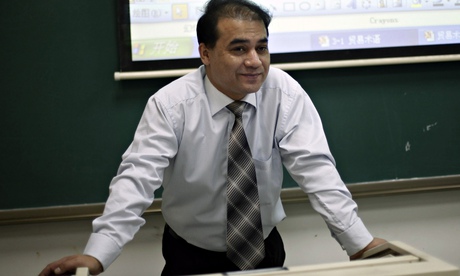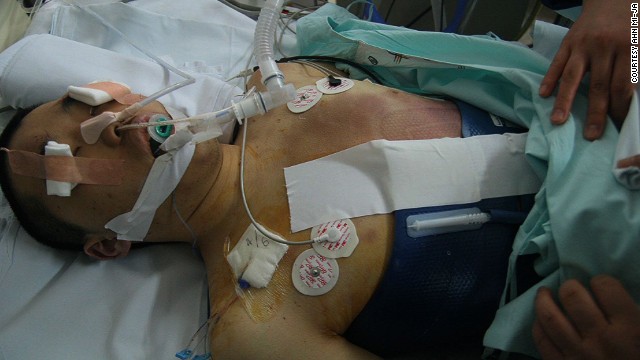By Hojin Choi
Impunity Watch Reporter, Asia
XINJIANG, China – China sentenced a Uighur scholar, Ilham Tohti, often referred to as “Uighur Nelson Mandela,” to life in prison for “separatism.” Nelson Mandela is the former president of South Africa who fought for democracy and against racial discrimination in the country. Tohti is an Economics professor at Minzu University, in Beijing. He was convicted after a two-day trial in Urumqi, the capital of Xinjiang.
The New York Times described him as “the most visible symbol of peaceful resistance by ethnic Uighurs to Chinese policies.” Tohti has been known for his works on human rights issues in Uighur. He has done extensive research on relations between Uighur and Han, the majority ethnic group in China. The Xinjiang region is where Uighur people have claimed democratic independence, but in return the Chinese government has insisted that so-called Uighur separatists and extremists have been committing continuous terror attacks in China. The ongoing dispute and the oppressive policies put in place by the Chinese government have brought international attention.

However, the Chinese government seems to have a different opinion about the professor. Tohti was charged with organizing and leading a separatist group. The prosecution argued that he had “internationalized” the Uighur’s independence issues by posting relevant foreign articles and holding interviews with foreign news agencies.
In a statement from the Xinjiang police, he was accused of colluding with foreign forces and spreading separatist ideas. It also argued that Tohti had taught his students about “violent Uighur resistance” and encouraged them to overthrow the Chinese government. During his trial, the prosecution offered evidence such as his class materials and the website he had operated. The officials used the materials to demonstrate his viewpoints on Uighur identity and China’s ethnic policies. They also argued that the alleged separatist group run by Tohti included several of his students. Reportedly, seven students were also detained for issues related to Tohti’s case and they will be tried soon.
According to his lawyer, Tohti “showed great spirit in court.” The lawyer added that “he gave an eloquent defense to every accusation. He maintained his innocence from the beginning to the end. He gave a brilliant 90-minute defense speech at the end of the trial.” The lawyer also said that he now worries about Tohti’s family, as they will face financial difficulties, living without the head of the family. Tohti has two sons, 5 and 8, and the court ordered confiscation of all his assets. Tohti was first arrested in January, and he had been detained until the trial without the rights to see his family for eight months.
The majority of international organizations and foreign governments condemned the Chinese government for the trial. The White House requested his release and said that he is a “respected professor who has long championed efforts to bridge differences between Uighurs and Han Chinese.” Tohti’s harsh sentence was considered “retribution for Professor Tohti’s efforts” to promote the human rights of the Uighur people.
A spokesperson for the U.S. embassy in Beijing asked the Chinese government to begin “differentiating between peaceful dissent and violent extremism.” International human rights group Amnesty International released a statement criticizing the purpose of the trial and its political background. “Tohti worked to peacefully build bridges between ethnic communities and for that he has been punished through politically motivated charges,” it said.
For more information please see:
The New York Times – China Sentences Uighur Scholar to Life – 23 September 2014
The New York Times – The Price of China’s Uighur Repression – 25 September 2014
CNN – China sentences prominent Uyghur scholar to life in prison for ‘separatism’ – 24 September 2014
CTV News – The case of scholar Ilham Tohti, the ‘Uighur Nelson Mandela’ – 25 September 2014
The Diplomat – Ilham Tohti and Islamic State: How China Defines Terrorism – 26 September 2014




